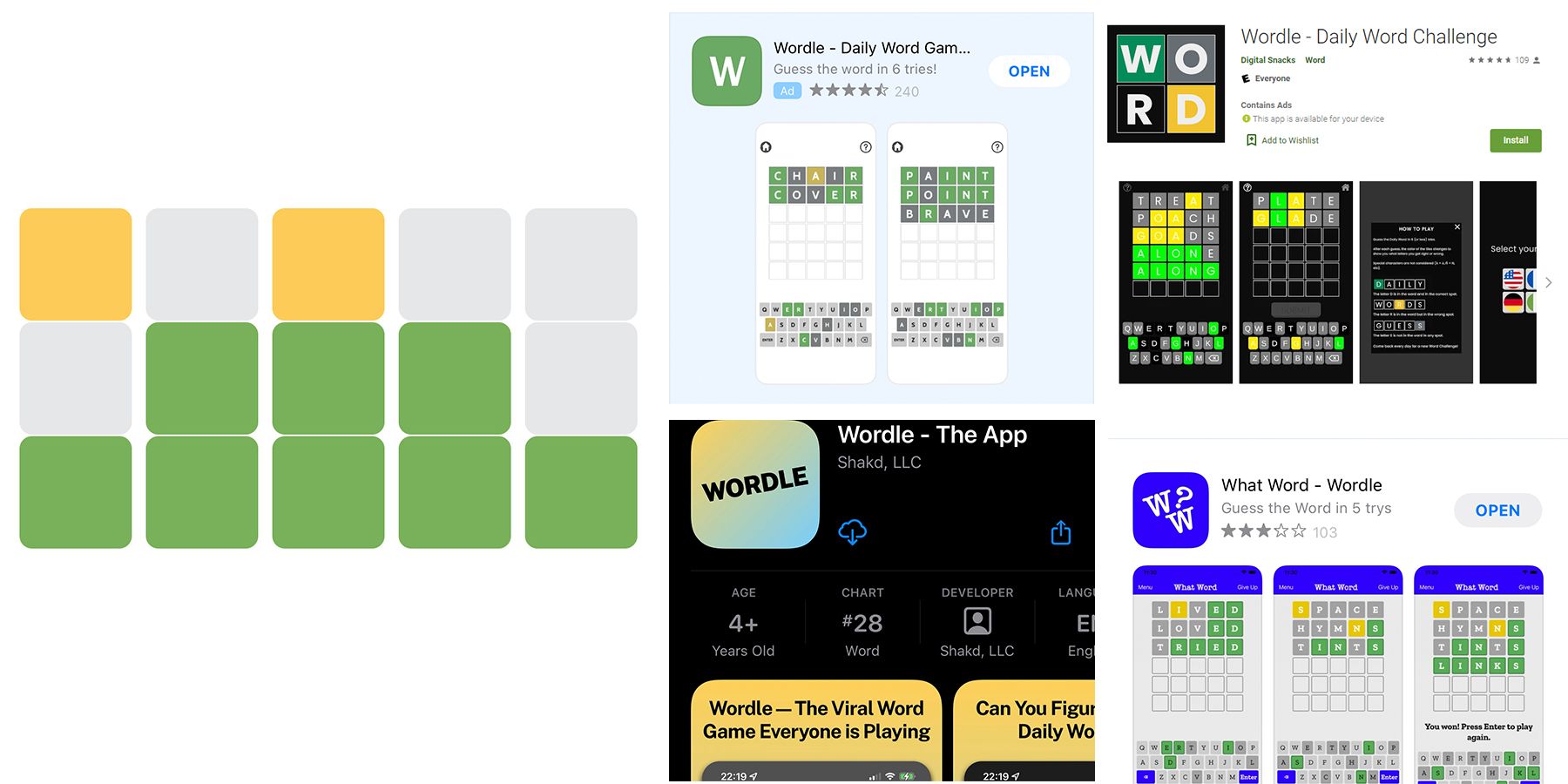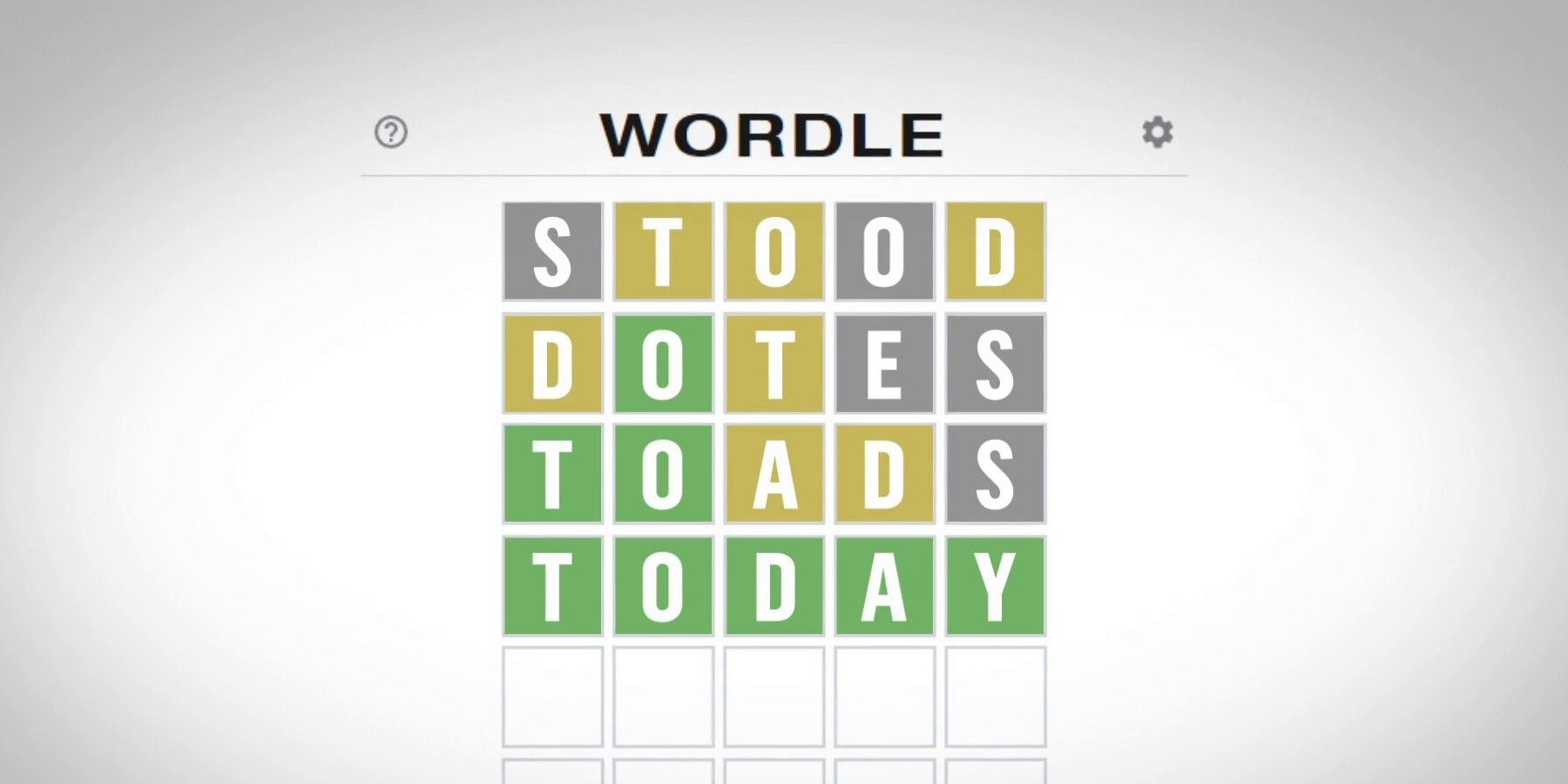Wordle is a fun little word guessing game available on any web browser. It tasks the player with guessing a five-letter word in six tries, providing hints with every failed guess. The challenge is updated daily with a different word, giving fans a quick and entertaining game to look forward to throughout the week.
Now, that may sound boring to some, but the deceptively simple game has captivated players all around the world. Unfortunately, with Wordle’s rapid success comes drawbacks, particularly in the form of clone applications.
Wordle Word Game Clones
Josh Wardle, the creator of Wordle, has already expressed his intention to keep Wordle free and ad-free. He also explains that he’s always been suspicious of mobile apps that pester players with push notifications, demanding their attention constantly. This is likely why Wordle was made as an in-browser game.
However, following the word game’s breakout success, some software developers quickly latched on to it, creating a nearly identical app that they then released to the App Store. The only difference is that these apps are monetized; the developers insert ads or a variety of in-app purchases into the cloned version of Wordle to make a profit.
One developer who released a Wordle clone on the App Store tweeted that he got over 5,000 downloads in a single hour. Not long after, Twitter users started calling him out for being a blatant Wordle copycat. Some even dug up one of his previous tweets where he stated that he, “absolutely despised copycats.” Following the backlash, the developer then set his Twitter account to Private. Although his bio still reads “Building @theWordleApp.”
Note that this is only one example of a Wordle clone. There are many more, and with these clone apps looking exceptionally similar to Wardle’s original game, it’s not hard to see why mobile users would be fooled into downloading and even paying for it. Although, this is where the App Store should step in.
After all the hubbub about the Wordle clones and controversy surrounding them, it seems the App Store has finally taken the apps down. However, there’s something to be said about the need for more robust policies guarding against such blatant clones. Aside from the clear ethical issues of copying a free game for profit, the flood of cloned apps on the App Store’s interface is not a good look and takes away from the platform’s legitimacy. It’s all the more ironic when the App Store says that it is committed to “ensuring that the apps we offer are held to the highest standards for privacy, security, and content.”
While Apple does have guidelines for software developers who want to put their offerings up on the App Store, the text on copycat games leaves much to be desired. The relevant section reads, “Come up with your own ideas. We know you have them, so make yours come to life.” It then goes on to dissuade developers from copying other apps as doing so may result in intellectual property infringement claims. Also, it isn’t “fair” to other developers.
Despite the vague guidelines, the Wordle clones are clearly just copies of Wardle’s original game. So it’s difficult not to wonder: Why didn’t Apple reject these apps from the get-go? The company has yet to say anything on the issue, but one thing’s for certain: The App Store needs to be stricter with its approval of applications. At the end of the day, having dozens of clones populating the store’s page is no good for both the consumer and the App Store.
Wordle is now available for free, playable on the game's official website.


